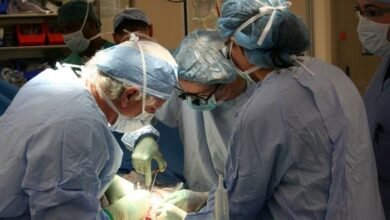Healthy Aging Tips: How to Stay Active and Independent

As we age, maintaining our independence and staying active can seem like a challenge. Have you ever wondered why some people remain energetic, healthy, and independent well into their later years, while others experience limitations and struggles with mobility or health issues?
Did you know that staying physically active is one of the most effective ways to prevent age-related health problems and maintain independence throughout your life?
The good news is that with the right lifestyle choices, you can remain strong, healthy, and self-sufficient as you age.
In this article, we’ll explore key tips for healthy aging, focusing on maintaining physical activity, proper nutrition, and mental wellness to help you live your best, most independent life at any age.
1. How Does Staying Active Help With Aging?
Physical activity is one of the most important components of healthy aging. It can help prevent or delay the onset of many chronic diseases, and it’s a crucial factor in maintaining your independence. Regular exercise is beneficial not just for your body, but for your mind as well.
Here’s how staying active impacts your health as you age:
Strengthens Muscles and Bones
As we age, we lose muscle mass and bone density, which can lead to frailty and an increased risk of fractures. Regular physical activity, especially weight-bearing and resistance exercises, can help prevent these issues. Strong muscles and bones give you the strength and stability to carry out daily activities without assistance.
Improves Flexibility and Balance
One of the major risks of aging is a decline in balance, which can lead to falls. A fall can be devastating, resulting in broken bones, long recovery times, and a decrease in mobility. Activities like yoga, tai chi, and simple stretching exercises can improve flexibility and balance, lowering the chances of falls.
Supports Heart Health
Cardiovascular disease is one of the leading causes of death among older adults. Regular exercise strengthens the heart, reduces blood pressure, and helps manage cholesterol levels, decreasing the risk of heart disease.
Boosts Brain Function and Mental Health
Exercise not only strengthens the body but also enhances brain function. It has been shown to improve memory, focus, and cognitive function. Additionally, staying active releases endorphins, which can reduce stress, anxiety, and depression—common mental health issues for aging adults.
Did you know that even light activities such as walking or gardening can reduce the risk of chronic conditions like arthritis, heart disease, and diabetes?
2. What Types of Exercises Are Best for Older Adults?
While the idea of strenuous workouts may seem daunting as we age, there are many low-impact exercises that can keep you strong, flexible, and mobile. It’s important to choose activities that suit your fitness level and that you enjoy. Consistency is key to staying active and maintaining independence.
Here are some great types of exercises for older adults:
Walking
Walking is one of the simplest and most accessible forms of exercise. It’s low-impact, can be done anywhere, and improves cardiovascular health, strengthens muscles, and boosts mood. Aim for at least 30 minutes a day, whether it’s a brisk walk around the block or a nature walk in the park.
Strength Training
Lifting light weights or using resistance bands helps preserve muscle mass, which naturally decreases as we age. Maintaining muscle strength is vital for performing everyday tasks, such as lifting groceries or getting up from a chair. Aim for strength exercises at least two days a week.
Balance Exercises
Improving balance is crucial to preventing falls, a common risk as we age. Balance exercises like tai chi, yoga, or standing on one leg can significantly improve stability. In fact, practicing tai chi has been shown to reduce falls in older adults by up to 50%.
Stretching and Flexibility
Maintaining flexibility can help prevent stiffness, muscle aches, and strains. Stretching exercises, yoga, or Pilates are excellent for increasing flexibility and improving posture. They can also alleviate stress and improve mental clarity.
Did you know that strength training twice a week can help increase bone density, reducing the risk of osteoporosis and fractures in older adults?
3. How Can Good Nutrition Impact Your Independence?
The foods you eat directly affect how you age. Proper nutrition plays a vital role in maintaining physical and mental health, helping to keep you active and independent. A balanced diet provides the energy and nutrients necessary for maintaining muscle mass, supporting bone health, and preventing age-related diseases.
Here are some key nutrition tips for healthy aging:
Focus on Nutrient-Dense Foods
As you age, your metabolism slows down, but your nutrient needs remain high. Choose nutrient-dense foods that provide a lot of vitamins and minerals without excessive calories. Include a variety of fruits, vegetables, lean proteins (like chicken, fish, or beans), whole grains, and healthy fats (like avocado, olive oil, and nuts) in your diet.
Get Enough Calcium and Vitamin D
Calcium and vitamin D are essential for maintaining strong bones. As you age, your bones become more fragile, and osteoporosis (bone thinning) becomes a risk. Foods like dairy, leafy greens, and fortified cereals are great sources of calcium. Vitamin D helps your body absorb calcium, so be sure to include foods like fatty fish (salmon, mackerel), eggs, and fortified products. If necessary, talk to your doctor about a supplement.
Stay Hydrated
As we age, our sense of thirst may decrease, making it easier to become dehydrated. Staying hydrated is essential for maintaining healthy skin, proper digestion, and preventing urinary tract infections. Aim to drink at least 8 cups of water a day, and more if you’re active.
Limit Processed Foods and Added Sugars
Excessive sugar and processed foods can contribute to obesity, diabetes, and heart disease. Avoid sugary snacks, sodas, and highly processed meals. Instead, opt for whole foods that nourish your body and help prevent chronic illnesses.
4. How Important Is Mental Health for Healthy Aging?
Maintaining mental well-being is just as important as physical health when it comes to aging. Loneliness, depression, and cognitive decline can have a negative impact on your overall well-being. Fortunately, there are many ways to keep your mind sharp and stay socially engaged.
Stay Socially Active
Loneliness and isolation are common in older adults, but maintaining strong social connections can significantly improve mental health. Engage in activities with friends, family, or join community groups. Social interaction helps reduce stress, boosts mood, and can even improve cognitive function.
Mental Exercises
Just as physical exercise strengthens your body, mental exercises can keep your mind sharp. Puzzles, reading, writing, or learning new skills can stimulate your brain and enhance memory. Engaging in creative activities, such as drawing, painting, or playing a musical instrument, can also help reduce stress and improve cognitive health.
5. Sleep and Rest: The Unsung Heroes of Healthy Aging
Adequate rest is essential for healthy aging. A good night’s sleep promotes physical repair, boosts immune function, and improves mood. As we age, many people experience difficulty sleeping, which can contribute to fatigue, stress, and even health problems.
To improve sleep quality:
- Stick to a regular sleep schedule.
- Create a relaxing bedtime routine.
- Avoid heavy meals, caffeine, or alcohol before bed.
- Make your sleep environment comfortable (dark, quiet, and cool).
Did you know that poor sleep is linked to an increased risk of heart disease, diabetes, and depression in older adults?
Conclusion: Aging With Vitality
Aging doesn’t have to mean slowing down or losing independence. By staying active, eating well, and taking care of your mental health, you can enjoy a vibrant and fulfilling life at any age. Start incorporating these tips today, and you’ll be well on your way to aging gracefully and independently.
Remember, staying active is one of the most powerful ways to improve your overall health, so make it a priority. Take small steps, and celebrate every achievement along the way!




